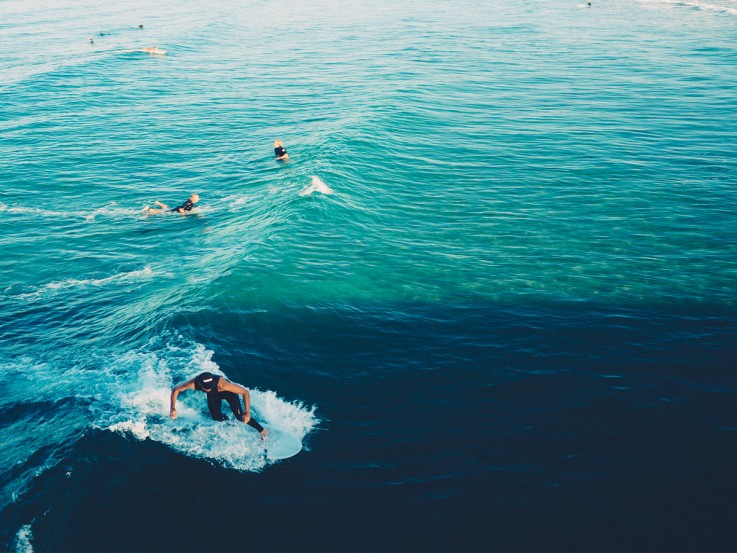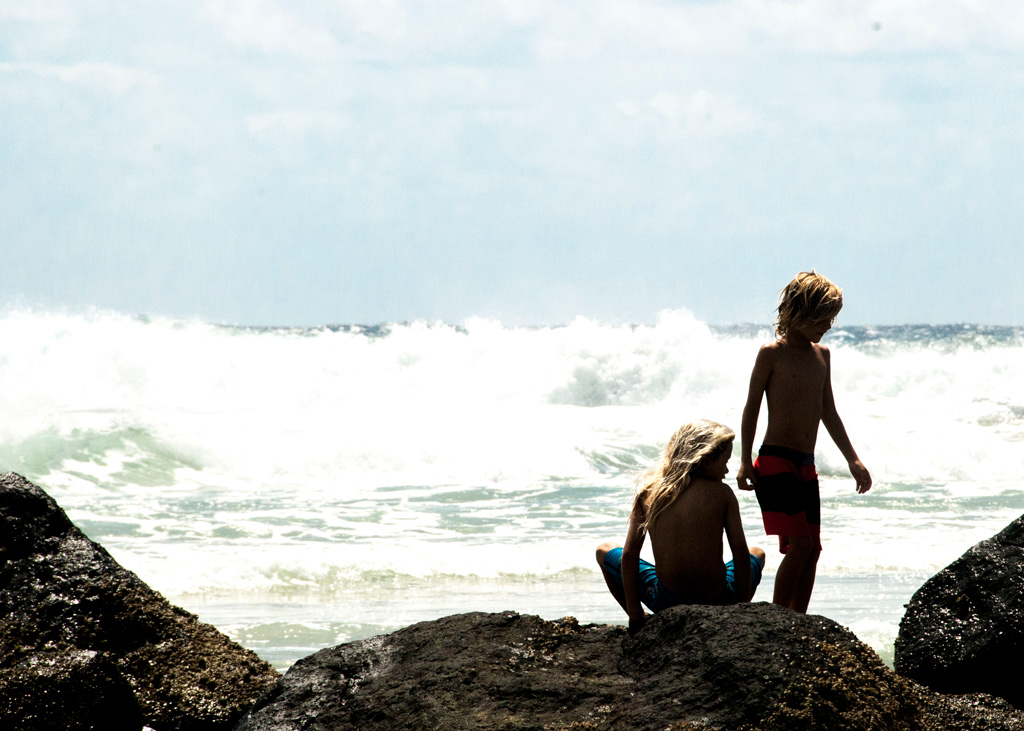How to Become a Surf Coach

If you’re into surfing, love the beach or enjoy teaching others a new skill, what better way to earn your keep than on the beach teaching potential shredders how to catch their first wave?!
We’ve done the hard yards for you and found out what you need to know. Get your skills up to scratch so your students are safe to ensure maximum enjoyment and minimum seaside peril.
Surf Instructors Qualification
A Level 1 Surf Instructors Qualification is the basic required qualification to teach with a surf school in Australia. The course is usually run face to face over two to three days. Make sure you have the time to get to all the lessons, as full course attendance is required to pass.
Most certified courses include learning about managing your students, communication skills for the surfing environment, the laws and regulations that apply to lessons, safety and risk assessment, lesson planning, equipment, and coaching methods, amongst other handy info, to make sure your students learn to surf the safe way.
You’ll need a healthy dose of enthusiasm, patience and a good sense of humour as you’ll set the tone for the whole experience for the people you teach. You’re chief of morale, the one encouraging students to have a laugh while they look a like a kook learning to stay on the board. We all started somewhere!
Most courses require you to complete 20 to 30 hours of practical surf coaching with a surf camp or surf lesson provider after the course. If you have a certain company you’d like to work for before starting the course, it might be worth chatting to them to make sure you can log these hours to get your full qualification. To take a course with Surfing Australia they require you to have a membership, but these rules vary depending on the training body you decide to use.
Working with Children Check
It’s likely you’ll be working with kids at some stage so it’s a good idea to sort yourself out with a Working with Children Check for your State. You can do this at the post office or online, just make sure you give yourself enough to time for it to be processed and it’s relevant to where you want to work.

Fitness and Surf Skills
There are basic fitness and surf skills required to get certified so spending time on the beach and in the water is bound to have the added bonus of improving both.
First Aid Course
Because you’ll be working with hazardous equipment and students of varying levels of ability and awareness, you do need to complete or provide first aid course (name varies depending on State). These courses teach you simple first aid for emergency situations and help to make sure you can give CPR or take life saving action before health professionals reach you should the worst happen. These courses also teach you how to keep yourself safe, which is pretty important in our book.
Most first aid qualifications last for two years before they need to be renewed but some surf schools require you to repeat them every year. It’s not a bad idea to keep these skills fresh in your mind as they could prove useful at any time.
Surf Life Saving Association Award
Working in the ocean environment comes with a completely unique set of constantly changing risks. This means that taking the basic level Surf Life Saving Association award is essential. Surf Life Saving Australia calls this the Bronze Medallion. This course includes safe water practices, emergency response, emergency care, rescue and survival skills, and techniques for spinal injury rescue.
This component also tests your fitness, swimming and life saving skills. It’s recommended you do some training leading up to these tests and whilst you’re teaching. That way you know you’re in shape and capable of not only passing the tests, but the physical demands of being a surf coach.
Whilst this article was based on Australian standards, Europe and America have similar requirements that include all of the above components, just via the relevant authority in the country you intend to work in. It’s worth noting that having experience in Australia is highly regarded, as we’re known to have a particularly challenging ocean environment.
As you can see being a surf coach sets you up with a diverse range of skills, useful throughout life and in several different careers. Learning to communicate effectively, lead a group, manage risk and keep yourself and others safe are all invaluable and transferable skills. Aside from that, the more obvious benefits include working on the beach, meeting new people, being able to travel to and work in exotic locations, and hopefully increasing your own wave count in the process.
Have you ever been a surf coach? We’d love to see your advice for new coaches in the comments below!
Posted by: Sarah Price, on November 5, 2015
Categories: Articles
Latest Posts
Craig Sims - White Horses & Surfing Life Publisher
Luke Kennedy - Editor of Tracks Magazine
Simon ‘Swilly’ Williams - Surf Photographer
Jarra Campbell - the Bondi Alchemist
Greg Gordon - Owner of CR Surf
Shayne Nienaber - Surf Photographer
Alexa Hohenberg - Owner of Still Stoked
Christine Deveney - TapaReef Owner & Creator
Russell Ord - Surf Photographer
Richard Kotch - Surf Photographer
Categories
Interviews
Articles
Videos
Press Releases
Quiz
Archive
December 2018
November 2018
October 2018
September 2018
August 2018
July 2018
June 2018
May 2018
April 2018
March 2018
February 2018
January 2018
November 2017
January 2017
December 2016
November 2016
October 2016
September 2016
August 2016
July 2016
June 2016
May 2016
April 2016
March 2016
February 2016
January 2016
December 2015
November 2015
October 2015
September 2015
August 2015
July 2015
June 2015
May 2015
April 2015
March 2015
February 2015
January 2015
December 2014
November 2014
October 2014
September 2014
August 2014
July 2014
June 2014
May 2014
April 2014
March 2014
February 2014
January 2014
December 2013
November 2013
October 2013
September 2013
August 2013
July 2013
June 2013
May 2013
April 2013
March 2013








